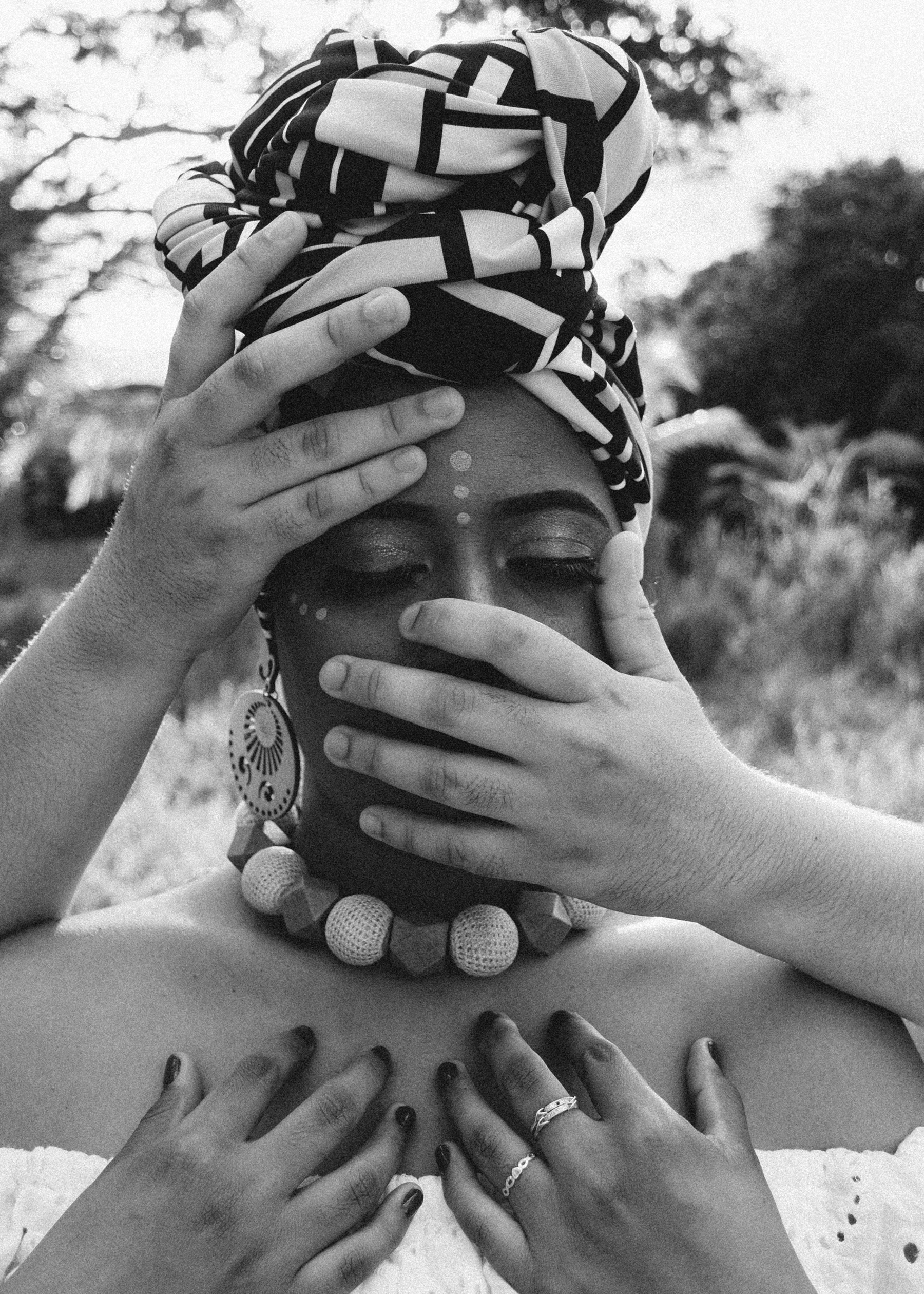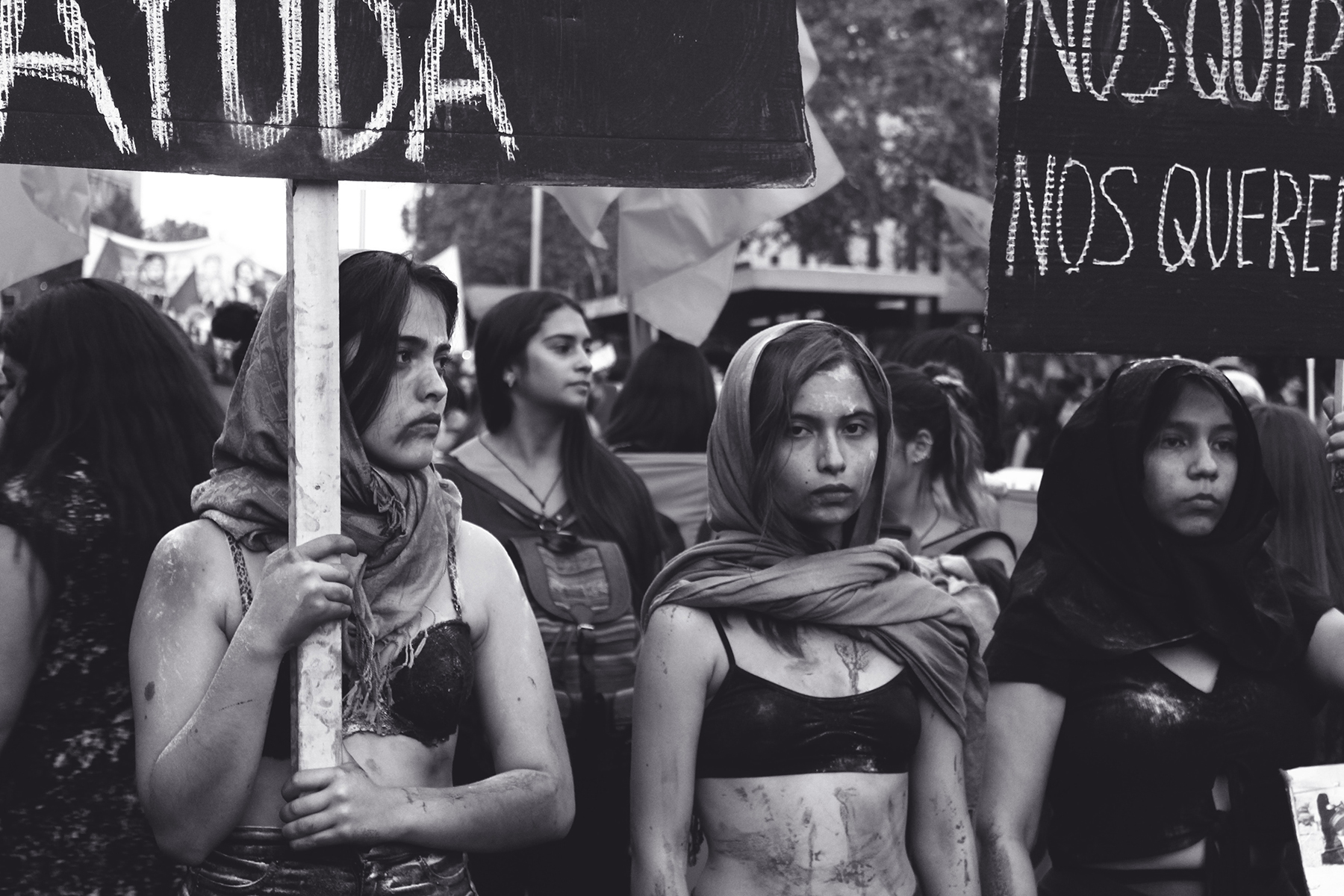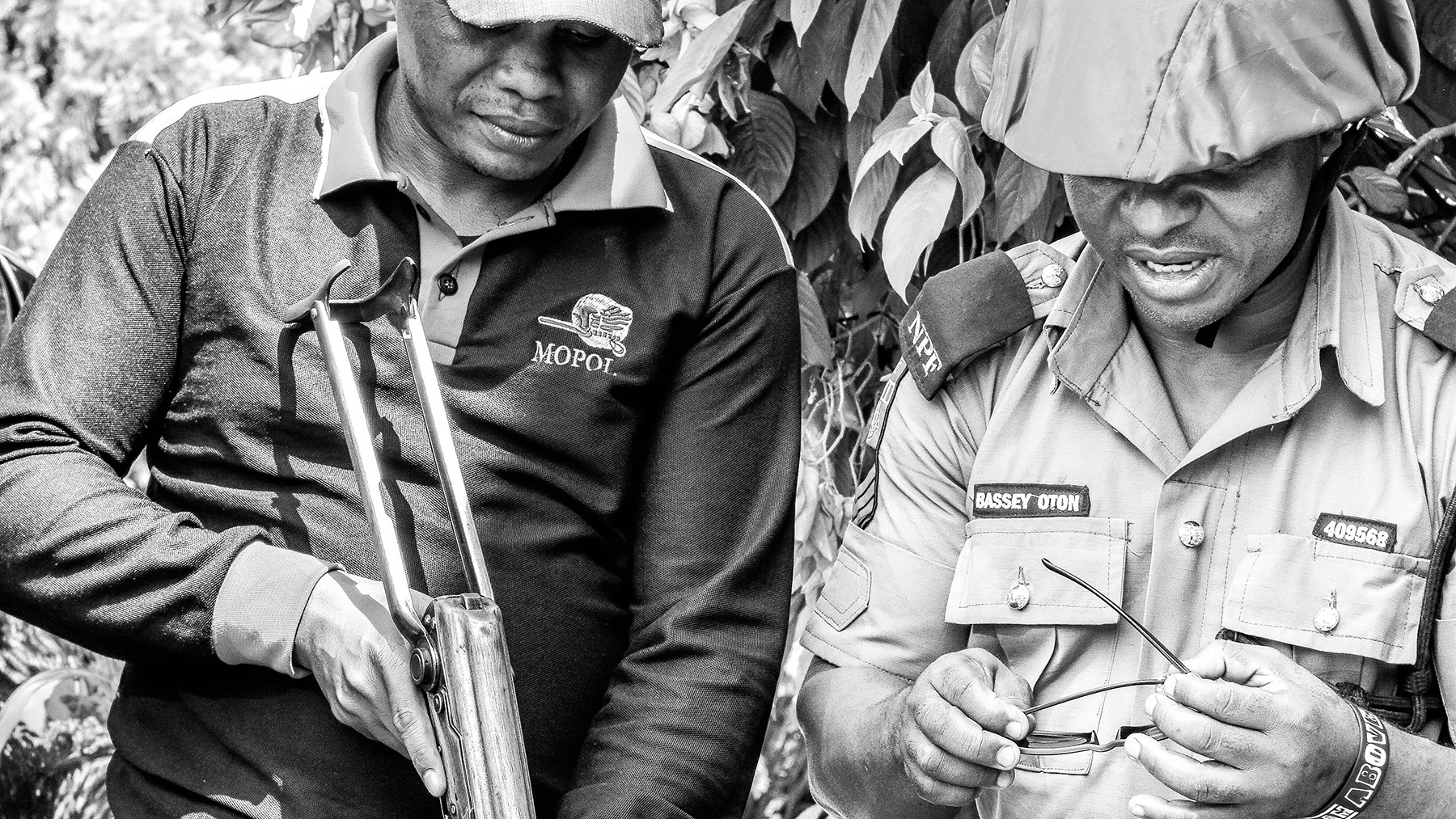10 August 2022
The power of power.
I wrote this article for a magazine in Nigeria, called The Moment for Women. The magazine focuses on women's right, reproductive rights, child marriage, rape, gender-based violence, access to education for girls and women. The issue in question can be accessed via this link.

To claim that women across the world lead the same battles, enjoy the same rights and have the same opportunities, is mildly put ignorant. Despite international attention to women’s rights in terms of freedom of choice, education, employment, political engagement, reproductive health, security and physical integrity, there are enormous differences in how women are treated in different parts of the world. Gender-based violence and discrimination are still rampant in politically and economically unstable countries, the majority of which in Africa and Western Asia. All the same, women continue to receive condescending treatment to a lesser or a greater degree almost everywhere.
Much effort has been put into reforming our societies globally to accommodate for real gender equality. Many organisations are fighting for women’s rights both in the so called developed countries and in nations which, sadly, still view women as mere instruments. Much research is dedicated to raising the public awareness to violation of women’s dignity, large international institutions are investing massive resources and human capital to empower women around the globe by rewriting policies, adopting conventions and reinforcing legal systems to protect women in all facets of life.
The Universal Declaration of Human Rights, issued by the United Nations General Assembly with the objective to protect fundamental human rights and individual freedoms, has been in place for 72 years! The Convention on the Elimination of All Forms of Discrimination Against Women (CEDAW) was adopted in 1979. The Beijing Declaration and Platform of Action was established 25 years ago (1995), aiming to empower women and eliminate inequality between the sexes in 12 critical areas of concern.
These are only a fraction of the existing international, regional and local initiatives to promote gender equality. Yet, the results are nowhere near satisfactory. UN Women reveals that progress has been made in many areas pertaining to gender equality, however, significant gaps remain.
The data cited in their progress report on women’s rights (2020) show that the percentage of development resources invested in ensuring gender equality is less than 5% (for comparison, the global annual military expenditure is estimated at US$1.82 trillion!). 32 million girls remain out of school; 12 million girls get married before they turn 18; 18% of women aged 15 to 49 years have experienced domestic violence; only 25% of public representation in governments is female (this marks a significant increase compared to earlier decades, though); women are paid 16% less than men and only one in four managers are women.
According to UN Women’s findings, 67% of decision-making roles are occupied by men and a mere 13% of negotiators in peace-building processes are women. We must be doing something wrong. What is standing in the way of truly promoting justice and eliminating gender inequality globally when so much attention and resources are being invested in addressing these problems?

In 2018, student groups in Santiago, Chile organised protests against sexual violence, asking for stronger government policies for investigation of sexual harrassment cases. Photo by L'odyssée Belle on Unsplash.
In their paper on human rights violations in Nigeria, Robinson Monday Olulu and Christian Chigozi Oriji at the University of Port Harcourt Nigeria borrow Okogbule’s explanation as to why the issue of women’s rights has not been given the consideration it deserves. According to Okogbule, there are two reasons: 1) lack of women representation in all major political institutions nationally and internationally which leads to the negligence of issues pertaining solely to women; 2) sharp distinction between the private and public sphere which leads to issues like domestic violence for example, to be omitted from local and international law and treated as a personal concern.
Public matters are largely seen as men’s prerogative whereas questions regarding domestic life are believed to be women’s natural domain. Unsurprisingly, this public/private dichotomy stems from social and cultural conceptions. As the authors argue “This attitude has a significant impact on the human rights of women because many of the problems women encounter arise from their entrapment within a socio-cultural and economic milieu which makes them vulnerable to abuses which are neither exclusively political nor solely caused by states’ (Olulu and Oriji, 2018, p. 934).
While I agree with the above categorisations, there are also other important factors which determine the still prevalent inferior position of women. A critical one is lack of political will and more importantly, the inability of international organisations to interfere in local jurisdictions where women’s (human) rights are clearly violated. Olulu and Oriji rightly argue that although Nigeria formally ratified frameworks like The Convention on Elimination of all forms of Discrimination Against Women (CEDAW) (in 1985) and the African Charter on Human and Peoples’ Rights (in 1983), the Nigerian constitution openly discriminates women and the Nigerian government has been reluctant to change the public conversation about gender stereotypes and truly reinforce laws to protect women’s rights in the country.
Partly, that is because ratification of such frameworks does not always end in their domestication (adoption as part of the local legal system) and even when it does, governments still have free rein to disregard and twist them however they see fit.
In support of their claims, Olulu and Oriji refer to CEDAW’s report before the UN CEDAW Committee on women’s rights in Nigeria from 2008. The report holds that the government has failed to reflect the actual situation of women’s rights in the country. CEDAW found that the root causes for trafficking and sexual exploitation of women and children, namely poverty, unemployment and illiteracy, have been neglected by the Nigerian authorities despite the establishment of a National Agency for Prohibition of Trafficking in Persons.
The report also shows that the Nigerian government has not defined discrimination against women in particular although it domesticated the African Charter on Human and People’s rights, which explicitly commands that ‘The State shall ensure the elimination of every discrimination against women and also ensure the protection of the rights of women and the child as stipulated in international declarations and conventions’ (African Charter on Human and Peoples’ Rights, ARTICLE 18:3).
Additionally, the government does not disclose official data on domestic violence and the Domestic Violence Protection Bill 2005 has only passed a second reading in the House of Assembly. Also, there is no law on marital rape which authorities clearly treatas a minor assault not worthy of their attention.
CEDAW’s report discloses that female education in Nigeria is still not a priority. In 2008, male adult literacy was 70% compared to 54% for women. At the time, only 3% of Nigerian women were employed at the Federal, State or Local policy level even though the government committed to accommodate for 30% female political representation. Twelve years later, this percentage hasn’t changed dramatically, the House of Representatives currently employs only 5.5% women.
Giving more seats to women in parliament is not enough, though. Once in politics, women should also have a voice in decision-and policy-making. Regrettably, that seems not to be the case. An article published by UN Women quotes several female politicians in Nigeria describing the hardships they have been facing during election campaigns and political engagement — lack of financial support, physical violence, intimidation and harassment and open gender discrimination.
A more recent report, issued by Amnesty International in 2018 for the Universal Periodic Review of Nigeria, raised similar concerns about continuous violations on human rights in Nigeria despite accepted recommendations for improvement by the Nigerian government. Among these are recommendations addressing torture and unlawful killings, violations by the security forces, gender-based violence and the implementation of measures against decades-long oil spillage in the Niger Delta which has devastating consequences both for people and the ecosystem.

As reported by Amnesty International and other human rights organisations, governments in politically unstable and conflict-afflicted countries often use or close their eyes to the local military conucting acts of terror over the population, despite their formal adoption of international human rights conventions. Photo by Tomsadventures on Unsplash.
Although President Buhari signed an Anti-Torture Act in 2017, which penalises acts of torture and other cruel, inhuman and degrading treatment, the act does not account for rehabilitation of victims and legal assistance to victims is limited to support for making complaints.
There is no clear evidence that action has been taken to limit the scope and intensity of police force to align with international laws, improve conditions in detention and ensure timely court hearings for detainees, even though the Inspector-General of Police assured in 2015 that reforms will be administered to address these issues. As documented by Amnesty International, Nigeria accepted to implement the Gender and Equal Opportunities (GEO) Bill and the Violence against Persons Prohibition (VAPP) Bill.
The VAPP Bill was passed by the National Assembly in 2015, but is only applicable in the Federal Capital Territory (FCT). The GEO Bill is still pending before the National Assembly. It contains provisions to prohibit discrimination against women and it would also address the systemic sexual exploitation of women and girls by men in positions of authority. However, the bill would override current discriminatory laws, directives and customs which is one explanation for the Nigerian government’s procrastination and disengagement to take real action.
Furthermore, Amnesty International testifies to abhorrent abuse of power by the military. Between August 2015 and October 2016, the security forces killed more than 150 members and supporters of the Indigenous People of Biafra and massacred more than 350 supporters of the Islamic Movement of Nigeria (IMN) in Kaduna state in December 2015, both during non-violent protests and gatherings.
The military has also committed horrendous crimes and violations against civilians in response to the Islamist armed group Boko Haram on numerous occasions. 20 000 people, mostly men and boys, have been arrested arbitrarily, 7000 people have died in detention because of starvation, extreme overcrowding and denial of medical care, hundreds of women have been detained without legitimate reason and access to legal representation.
In the liberated towns the military has established satellite camps where women and girls have been sexually exploited and raped by military officers as an extortion tactic. The absurdity of this situation is that the military obviously liberates territories plagued by Boko Haram only to exert the same terror over their population.
Authorities in Nigeria have announced a number of investigations into allegations of human rights violations. Nevertheless, none of their reports have been made public and many senior military officers have been cleared of any wrong-doings which Amnesty International classifies as “crimes against humanity”.
Not only has the Nigerian government been demonstratively indifferent to Amnesty International’s and other organisations’ recommendations, it has been outright obstructive to upholding human rights in the country. Journalists and human rights activists continue to be threatened and detained by security forces for merely expressing critical opinions.
What’s more, in 2017, the Parliament debated a bill to restrict the work of NGOs by appointing an NGO Regulatory Commission to monitor and coordinate the activities, funding and purview of all NGOs. As suggested by Amnesty International, if passed, this bill would have seriously hampered any attempt to defend rights to freedom of association and expression. Luckily, the severe public opposition led to the dismissal of the proposed bill but that is no consolation having in mind the unimpeded power of the Nigerian authorities to abuse their position.
As evidenced by both CEDAW and Amnesty International, the efforts of the international community to ensure and protect human rights, often get stifled by local governments on the pretext of a conflict with the country’s constitution or local culture. Under such circumstances, I believe we should ask the seemingly naive question: What is the purpose of having independent transnational regulatory organs to protect human rights if their hands are nonetheless tied before local authorities?
How are organisations like the UN, Human Rights Watch, Amnesty International, The International Criminal Court to protect women and other ostracised groups and uphold justice when local legal systems are still powerful enough to override their work and undermine their impact? We shouldn’t dismiss lightly the tremendous progress that has been achieved globally and locally thanks to international cooperation and individual effort both in defending women’s rights and human rights in general. However, all the people who do get left behind in the process for one reason or another, are not just numbers.
Article 1 of the Universal Declaration of Human Rights reads that ‘All human beings are born free and equal in dignity and rights’. I think we can all agree that this simply isn’t true in reality. All human beings should be born free and equal in dignity and rights but they apparently aren’t. Governments’ power to cherry-pick what provisions and human rights laws to follow in accordance with what works in their best interest, is hard evidence that human rights are, in fact, not inalienable.
If we want to ensure that international treaties and conventions are more than formalities on paper, those same treaties and conventions should have an actual right to seek accountability and take corrective action against governments and any other form of local authority regardless of constitutions, traditions, religious beliefs, geopolitical position etc. Otherwise, the status quo will never truly be challenged on a global scale and the rights of the powerless will always be subservient to the rights of the powerful.
***
REFERENCES
1) African Commission on Human and Peoples' Rights. African Charter on Human and Peoples’ Rights. (1981). [Available online: https://www.achpr.org/legalinstruments/detail?id=49]. [Accessed 29.07.2020].
2) Amnesty International. (2018). Still no accountability for human rights violations in Nigeria . Amnesty International.
3) Olulu, R. M., & Oriji, C. C. (2018). Women and Human Rights Violations in Nigeria. International Journal of Scientific Research in Education, 11(5), 928–939.
4) The Nigerian NGO CEDAW Coalition. (2008). CEDAW Shadow Report.
5) United Nations. (1948). Universal Declaration of Human Rights (UDHR).
6) UN Women. (2015). The Beijing Platform for Action Turns 20. [Available online: https://beijing20.unwomen.org/en/about ]. [Accessed 1.08.2020].
7) UN Women. (2019). It’s election season in Nigeria, but where are the women? [Available online: https://www.unwomen.org/en/news/stories/2019/2/feature-women-in-politics-in-nigeria]. [Accessed 29.07.2020].
8) UN Women. (2020). Gender equality: Women’s rights in review 25 years after Beijing. UN Women, New York.

About me
I am a designer based in Bulgaria.I love typography, squares, negative space, and almost anything black and white. When I'm not designing, I read, write, drive, watch documentaries, listen to podcasts, and talk to people about random and not so random stuff.
EMAIL | LINKEDIN | INSTAGRAM | TWITTER
© 2026 | dessutom